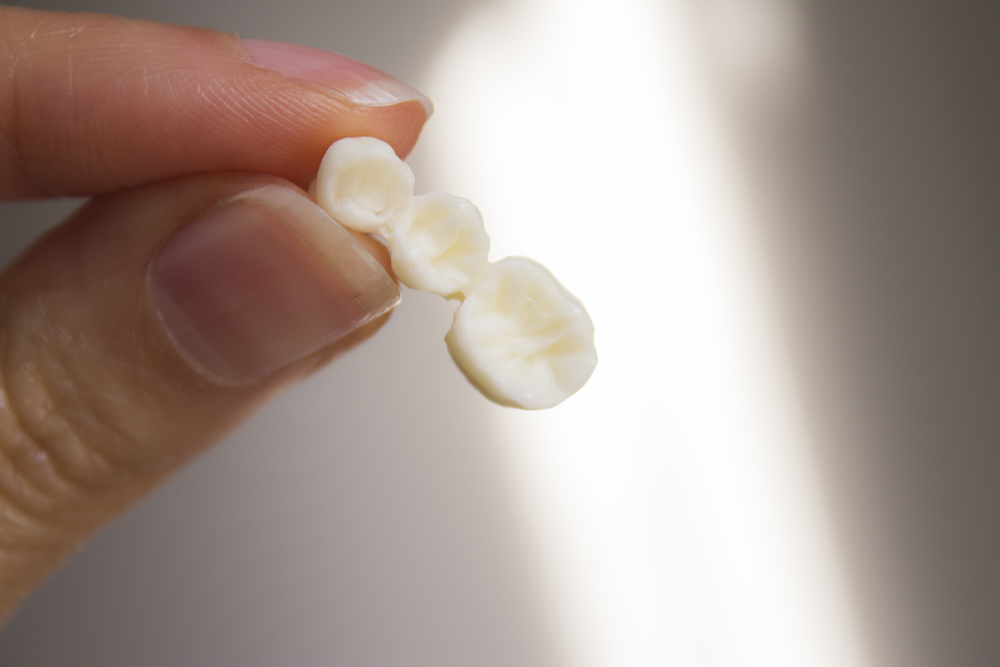
If your teeth are damaged, decayed or missing, there is a range of options available to help restore a healthy, bright smile. Dental bridges are a way to close (or bridge) the gaps in your smile if you have several missing teeth. It’s a type of false tooth called pontics that are made from gold, alloys, porcelain, or a combination of these materials.
Types of Dental Bridges
Dental bridges are usually supported by implants or crowns fitted over existing natural teeth either side of the gap. The four main types of dental bridges include:
- Traditional dental bridge – This consists of a false tooth or teeth being held in place by dental crowns that have been cemented onto each of the abutment teeth. A traditional bridge is the most popular type of dental bridge and can be used when you have natural teeth on both sides of the gap created by your missing tooth.
- Cantilever dental bridge – Similar to a traditional bridge except the pontic is held in place by a dental crown that is cemented to only one abutment tooth. For a cantilever bridge, you only need one natural tooth next to the missing tooth gap.
- Maryland bonded dental bridge – Also similar to a traditional bridge, except the pontic is held using a framework of either metal or porcelain that is bonded onto the backs of the abutment teeth instead of using crowns.
- Implant-supported dental bridge – This involves using dental implants to support the bridge instead of crowns or frameworks. This usually involves getting an implant for every missing tooth, each of which works together to hold the bridge in position. If getting one implant for each missing tooth isn’t possible, the bridge may have a pontic suspended between two implants.
The appropriate option depends on a variety of factors like which teeth are missing, how many teeth are missing, gum health and more. Your dentist will discuss and recommend the most appropriate solution for your case.
Benefits of Dental Bridges
When you have a missing tooth or missing teeth, it can affect you in a number of ways. A dental bridge can address those changes, including:
- Restoring the ability to chew properly
- Restoring your speech and pronunciation
- Properly distributing bite force consistently when you chew
- Maintaining the shape of your face
- Preventing your remaining teeth from drifting out of the correct position
As long as you practice good oral hygiene, they will last a lifetime. If existing natural teeth support your bridge, it is essential to keep remaining teeth healthy and strong. The success of the bridge depends on the solid foundation offered by the surrounding teeth.
Book a Dental Appointment in North Lakes Today
If you’re wondering whether a dental bridge is a good option for you, book a consultation at Mango Hill Dental. We provide a wide range of restorative, preventative and cosmetic dentistry services in a relaxed, friendly atmosphere. Contact us today to book an appointment today at our clinic in North Lakes.